Products & Services
See also: Categories | Featured Products | Technical Articles | More Information-
Supplier: Suzhou Niumag Corporation
Description: The MicroMR02-025V Core NMR analyzer is well designed to test samples with different characteristics and provides you with the most professional and best match analytical solutions. After years of concentrated study, three MicroMR products (2MHz, 5MHz, and 12MHz) can now be provided with
-
Supplier: Suzhou Niumag Corporation
Description: The PQ001 NMR Analyzer was launched in 2008. After years of upgrading, PQ001 has many advantages such as small size, high precision, good repeatability, good stability and excellent cost/benefit performance. Based on these advantages, PQ001 has been widely used in MRI Contrast Agent
-
Supplier: Suzhou Niumag Corporation
Description: Product Description PQ001 NMR Analyzer was launched in 2008. After years of upgrading, PQ001 has many advantages such as small size, high precision, good repeatability, good stability and excellent cost/benefit characteristics. Based on these advantages, PQ001 has been widely used
-
-
Supplier: Oxford Instruments
Description: Pulsar is a high resolution, 60MHz benchtop NMR spectrometer, providing high quality 1-D and 2-D NMR spectra of 1H, 19F, 13C and 31P. Pulsar uses a permanent magnet which means that it requires neither liquid helium nor liquid nitrogen. Advanced
-
Supplier: Oxford Instruments
Description: The MQC+ benchtop NMR analyzer measures oil, water, fluorine and solid fat in a variety of samples and is typically used for quality assurance and quality control. Analysis using the MQC+ takes from a few seconds to a few minutes, which means that a high volume of samples can be processed
-
Supplier: Bruker Corporation
Description: Time-Domain NMR or Low Resolution NMR is a well known variant of NMR referred to as TD-NMR. It is being widely applied in Quality Control (QC/QA) and Research & Development. Bruker now provides a NMR benchtop system for many purposes. Applications for TD-NMR
-
Supplier: Suzhou Niumag Corporation
Description: analysis of water phase; Advanced inversion function of NMR scanning software calculates T1 and/or T2 relaxation time, ensuring quick and accurate analysis on relaxation; Applications: Marinating and Water Outlet of Beef Water absorption of a mung bean Determination of oil and/or moisture
-
Supplier: Oxford Instruments
Description: The MQR is a low resolution, high performance TD-NMR research system designed for applications based on relaxation and/or diffusion measurements. The system includes a high performance digital spectrometer, 23MHz (0.54T) permanent magnet, and a choice of interchangeable 10, 18 and 26mm probes
-
Supplier: COSA Xentaur Corporation
Description: TD-NMR Spectrometer Model SpinPulse CX-20 Total Fat and Moisture in Food & Medical Products Food and Feed, Seeds, Grains, Chocolate and Candy Dairy Products and Non-Homogenous Samples Pharmaceutical Powders and Tablets
-
Supplier: Accuris
Description: NMR SPECTROSCOPY TECHNIQUES
-
Supplier: Accuris
Description: NMR TECHNIQUES IN CATALYSIS
-
Supplier: Accuris
Description: PHOSPHORUS NMR IN BIOLOGY
-
Supplier: Win Source Electronics
Description: Manufacturer: C&D Technologies Win Source Part Number: 1231878-NMR101 Manufacturer Homepage: www.cdpowerelectroni cs.com RoHS State: Request Verification Popularity: Medium Fake Threat In the Open Market: 45 pct. Supply and Demand Status: Limited
-
Supplier: Accuris
Description: NMR AND CHEMISTRY: AN INTRODUCTION TO MODERN NMR SPECTROSCOPY
-
Supplier: Dexter Magnetic Technologies, Inc.
Description: Dexter Magnetic Technologies has designed and produced a large variety of permanent magnet static field sources for MRI/NMR applications, some based on our current quadrature magnet patents and others so unique that patents have been applied for. Magnetic Resonance Imaging (MRI) was known
- Form Factor: Bench / Rack / Cabinet
- Technology: Magnetic / Barkhausen
-
Supplier: RFMW
Description: Cable Assy, N R/A Plug to N R/A plug, RG400, 60 in. long, 12.4 GHz
-
Supplier: RFMW
Description: Cable Assy, N Right Angle Plug to N Right Angle Plug, Lab-Flex 200, 24 in. long, 18 GHz
-
Supplier: VAST STOCK CO., LIMITED
Description: AC Fans AC Tubeaxial Fan
-
Supplier: Dickow Pump Company, Inc.
Description: General Magnetic coupled DICKOW-Pumps of series NMR are of sealless design. The containment shell forms a closed system with hermetically sealed liquid end. The NMR pumps are designed for the chemical process industry. A leak-free magnetic drive is used to improve plant and personnel
- Horsepower: 265 HP
- Maximum Discharge Pressure: 580 psi
- Maximum Discharge Flow: 4400 GPM
- Pump Type / Application: Magnetic Drive
-
Supplier: Win Source Electronics
Description: Manufacturer: Murata Electronics North America Win Source Part Number: 1231882-NMR120C Manufacturer Homepage: www.murata.com Popularity: Medium Fake Threat In the Open Market: 89 pct. Supply and Demand Status: Limited
-
Supplier: Win Source Electronics
Description: Manufacturer: Murata Electronics North America Win Source Part Number: 1231879-NMR106C Manufacturer Homepage: www.murata.com Popularity: Medium Fake Threat In the Open Market: 92 pct. Supply and Demand Status: Limited
-
Supplier: Win Source Electronics
Description: Manufacturer: Murata Electronics North America Win Source Part Number: 1231881-NMR118C Manufacturer Homepage: www.murata.com Popularity: Medium Fake Threat In the Open Market: 83 pct. Supply and Demand Status: Limited
-
Supplier: Bruker Corporation
Description: Analytical nuclear magnetic resonance (NMR) solutions and instruments for life science and material research applications Nuclear magnetic resonance spectroscopy is used to study the structure of molecules, the interaction of various molecules, the kinetics or dynamics of molecules and the
-
Supplier: Oxford Instruments
Description: GeoSpec is the industry standard NMR rock core analyzer, with installations in almost every major oil producer and SCAL laboratory world-wide. Three models are available operating at 2, 12 and 20MHz. The GeoSpec 2MHz models are the industry standard for routine measurements of relaxation
-
Supplier: LIXINC Electronics Co., Limited
Description: DC DC CONVERTER 15V 1W
- IC Package Type: Other
- Input Voltage (VIN): 5.5 volts
- Operating Temperature: -40 to 85 C
- Output Current (IOUT): 0.0670 amps
-
Supplier: LIXINC Electronics Co., Limited
Description: DC DC CONVERTER 5V 1W
- IC Package Type: Other
- Input Voltage (VIN): 5.5 volts
- Operating Temperature: -40 to 85 C
- Output Current (IOUT): 0.2000 amps
-
Supplier: Heilind Electronics, Inc.
Description: SA
-
Supplier: DigiKey
Description: DC DC CONVERTER 5V 1W
- DC Input Voltage: 4.5 to 5.5 volts
- DC Output Current: 0.2000 amps
- Form Factor: Board Mount
- Type: DC/DC Converter
-
Supplier: Bonomi North America, Inc.
Description: 24VAC 4-way Conduit connection
- Number of Ports/Ways: 4
- Power: 24 volts
- Pressure Rating: 20 to 120 psi
- Single Solenoid: Yes
-
Supplier: Bonomi North America, Inc.
Description: 24VAC 4-way explosion proof
- Number of Ports/Ways: 4
- Power: 24 volts
- Pressure Rating: 20 to 120 psi
- Single Solenoid: Yes
-
Supplier: Lake Shore Cryotronics, Inc.
Description: SuperTran-VP cryostat features <2 K to 500 K Can use either LHe or LN2 Sample-in-flowing-va por Lake Shore SuperTran-VP cryostats cool samples by immersion in a temperature-controll ed flowing gas. Simple to operate, they use a high-efficiency transfer line to deliver LHe (or LN2) to the sample
-
Supplier: DigiKey
Description: ADPTR R/A N-F / N-M
- Connector Type: Coaxial Connector, RF and Microwave Connector
- Gender: Male / Plug, Female / Jack
- Geometry: Right Angle
-
Description: DC DC CONVERTER 15V 1W
- Form Factor: Board Mount
-
Description: DC DC CONVERTER 5V 1W
- Form Factor: Board Mount
-
Description: DC DC CONVERTER 12V 1W
- Form Factor: Board Mount
-
Supplier: DigiKey
Description: ADPTR R/A N-F/N-M DC-18GHZ
- Connector Type: Type N
- Gender: Male / Plug, Female / Jack
- Geometry: Right Angle
-
Supplier: Microelectrodes, Inc.
Description: Measures volumes as small as 5 microliters. Each combination pH electrode includes a bottle of reference solution.
- Body Material: Glass
- Electrode Configuration: Combination
- Junction Type: Double Junction
- Mounting Options: Hand Held or Portable
-
Supplier: RFMW
Description: Cable Assy, N R/A Plug to TNC plug, RG142, 26 in. long, 12.4 GHz
-
Supplier: RFMW
Description: Cable Assy, N Straight Plug to N Right Angle Plug, Lab-Flex 200, 30 in. long, 18 GHz, Weatherized Polyolefin
Find Suppliers by Category Top
Featured Products Top
-
 The Magnetic driven NMR pumps seal-less magnetic drive design improves plant and personal safety, especially when handling toxic, explosive, or other dangerous liquids. The containment shell (read more)
The Magnetic driven NMR pumps seal-less magnetic drive design improves plant and personal safety, especially when handling toxic, explosive, or other dangerous liquids. The containment shell (read more)
Browse Centrifugal Pumps Datasheets for Dickow Pump Company, Inc. -
 Cutting edge technology support by THK-NM1 MRI Scanner Electron Microscope NMR Spectrometer Electron Beam Lithography System Learn More (read more)
Cutting edge technology support by THK-NM1 MRI Scanner Electron Microscope NMR Spectrometer Electron Beam Lithography System Learn More (read more)
Browse Roller Bearings Datasheets for THK America, Inc. -
 NMR, Sealless Magnetic Coupled Centrifugal Pumps Type NMR Magnetic coupled DICKOW-Pumps of (read more)
NMR, Sealless Magnetic Coupled Centrifugal Pumps Type NMR Magnetic coupled DICKOW-Pumps of (read more)
Browse Centrifugal Pumps Datasheets for Dickow Pump Company, Inc. -
 <2% Wavefront distortion λ/6@633nm Quarter-wave voltage ~3400V Scratch/Dig 20/10 Capacitance 6-10pF Clear Aperture ≥90% Coatings AR@1064nm(R<0.2%), or customised upon request Damage threshold 1GW/cm² 10ns 10Hz at 1064nm (read more)
<2% Wavefront distortion λ/6@633nm Quarter-wave voltage ~3400V Scratch/Dig 20/10 Capacitance 6-10pF Clear Aperture ≥90% Coatings AR@1064nm(R<0.2%), or customised upon request Damage threshold 1GW/cm² 10ns 10Hz at 1064nm (read more)
Browse Q-switches Datasheets for CRYSTECH, Inc. -
 <2% Wavefront distortion λ/6@633nm Quarter-wave voltage ~3400V Scratch/Dig 20/10 Capacitance 6-10pF Clear Aperture ≥90% Coatings AR@1064nm(R<0.2%), or customised upon request Damage threshold 1GW/cm² 10ns 10Hz at 1064nm (read more)
<2% Wavefront distortion λ/6@633nm Quarter-wave voltage ~3400V Scratch/Dig 20/10 Capacitance 6-10pF Clear Aperture ≥90% Coatings AR@1064nm(R<0.2%), or customised upon request Damage threshold 1GW/cm² 10ns 10Hz at 1064nm (read more)
Browse Q-switches Datasheets for CRYSTECH, Inc. -
 accelerator projects, ore separator magnets, NMR magnets, and superconducting magnetic energy storage (SMES) magnets. Other projects include Tevatron at Fermilab, RHIC for Brookhaven National Labs, LHC for Cern, 45 Tesla Hybrid Magnet for NHMFL, 36 strand Rutherford cable for GSI-Darmstadt FAIR (read more)
accelerator projects, ore separator magnets, NMR magnets, and superconducting magnetic energy storage (SMES) magnets. Other projects include Tevatron at Fermilab, RHIC for Brookhaven National Labs, LHC for Cern, 45 Tesla Hybrid Magnet for NHMFL, 36 strand Rutherford cable for GSI-Darmstadt FAIR (read more)
Browse Wire Manufacturing Services Datasheets for New England Wire Technologies Corporation -
 5-Pole Low-Pass Filtering Up to 160dB CMR 85dB NMR at 60Hz, 80dB at 50Hz Protected Against Reverse Connection of Loop Voltage -40°C to +80°C Operating Temperature Mounts on DIN Rail EN 50022, 35x7.5 or 35x15 CSA C/US Certified (read more)
5-Pole Low-Pass Filtering Up to 160dB CMR 85dB NMR at 60Hz, 80dB at 50Hz Protected Against Reverse Connection of Loop Voltage -40°C to +80°C Operating Temperature Mounts on DIN Rail EN 50022, 35x7.5 or 35x15 CSA C/US Certified (read more)
Browse Signal Conditioners Datasheets for Dataforth Corporation -
 • Magnetic Navigation • Magnetic Levitation • Magnetic Seperation • Magnetron Sputtering • MRI/NMR • DiPole • Halbach Modules (read more)
• Magnetic Navigation • Magnetic Levitation • Magnetic Seperation • Magnetron Sputtering • MRI/NMR • DiPole • Halbach Modules (read more)
Browse Prototyping Services Datasheets for Hangzhou X-mag Inc. -
 TWD λ/6@633nm Electrode Ti or Au Extinction Ratio >20dB Coating AR@1064nm(R<0.2%), or customized upon request (read more)
TWD λ/6@633nm Electrode Ti or Au Extinction Ratio >20dB Coating AR@1064nm(R<0.2%), or customized upon request (read more)
Browse Q-switches Datasheets for CRYSTECH, Inc. -
 at a High Level The MRI machines we are accustomed to today are based on the principle of nuclear magnetic resonance (NMR). More specifically, the molecules that make up the human body contain hydrogen, and the nucleus of the hydrogen atom has a single proton that behaves like a magnet (read more)
at a High Level The MRI machines we are accustomed to today are based on the principle of nuclear magnetic resonance (NMR). More specifically, the molecules that make up the human body contain hydrogen, and the nucleus of the hydrogen atom has a single proton that behaves like a magnet (read more)
Browse Capacitors Datasheets for Knowles Precision Devices
Conduct Research Top
-
Pulsed NMR
The pulsed NMR also called Time domain NMR, the short name is TD NMR. It uses physical methods to display abstract theories using multimedia, allowing us to see the imaging effects intuitively and help us quickly understand the imaging principles of NMR.
-
Benchtop NMR
NIUMAG Benchtop NMR instruments offer a convenient and affordable solution for many routine NMR applications in research and industry. While they may have some limitations compared to high-field NMR, they provide a practical option for many chemists and scientists who require NMR capabilities
-
Time domain NMR (TD-NMR)
Time domain NMR (TD-NMR) is a magnetic resonance technique based on relaxation time detection. Time domain NMR is generally tested and analyzed by T1 and T2 relaxation time. It is an advanced characterization method, and the test process is fast and non-destructive.
-
NMR Relaxations
In benchtop nmr experiments, there are two main relaxations, spin-lattice relaxation and spin-spin relaxation. The following figure is the recovery curve of T1 and T2.
-
NMR Relaxation
In benchtop nmr experiments, there are two main relaxations, spin-lattice relaxation and spin-spin relaxation. The following figure is the recovery curve of T1 and T2.
-
NMR Instrument
The choice of NMR instrument depends on the application and the sample being studied. Higher field strengths generally provide better resolution and sensitivity, but they also require more expensive instrumentation and specialized expertise.
-
NMR Cryoporometry-low Field NMR
NMR cryoporometry (NMR-C) is an emerging pore characterization technology that can cover the test range of nanopores, can achieve continuous measurement of the same sample, and can directly and efficiently obtain pore size distribution, porosity, and other information. The test process has little
-
"Probe" into NMR
Speaking of nuclear magnetic resonance (NMR), the first reaction of many people is the examination we usually do in the hospital-magnetic resonance imaging (MRI). Due to the lack of certain scientific knowledge, many of them believe that MRI has radiation and is harmful to the body. This is called
More Information Top
-
Modern Magnetic Resonance
O NMR Chemical Shift NMR for Hydrogen Bonds, Shigeki Kuroki .
-
Aromatic Hydroxyketones: Preparation and Physical Properties
A large part of these are included in the reference NMR and IR spectra collection of Sadtler …
-
Natural Compounds
13 C NMR ), which may further lead to a fundamental generalization of chemical and biological properties, and …
-
Natural Compounds
NMR , etc.), information on pharmacology and biol- ogy, and references to original papers.
-
Aromatic Hydroxyketones: Preparation & Physical Properties
A large part of these are included in the reference NMR and IR spectra collection of SADTLER …
-
Encyclopedia of Biophysics
… from diffraction, through a wide range of spectroscopic methods (X-ray, optical, EPR, NMR ), kinetics, thermodynamics and …
-
Handbook of Hydroxyacetophenones: Preparation and Physical Properties
A large part of these are included in the reference NMR and IR spectra collection of Sadtler …
-
Metabonomics in Toxicity Assessment
… a presentation of the instrumentation and methods that are required to perform biofluid NMR will be made …














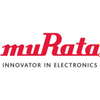
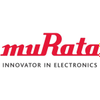
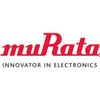


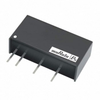
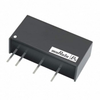

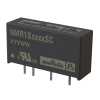



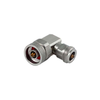


 Indicates content that may require registration and/or purchase.
Indicates content that may require registration and/or purchase.
